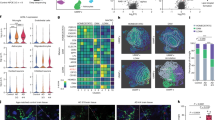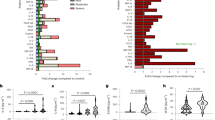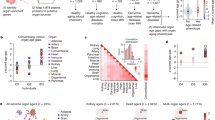Abstract
Subjects with mild cognitive impairment (MCI) are at a high risk of developing clinical Alzheimer's disease (AD). We asked to what extent the core biomarker candidates cerebro-spinal fluid (CSF) β-amyloid1–42 (Aβ1–42) and CSF tau protein concentrations predict conversion from MCI to AD. We studied 52 patients with MCI, 93 AD patients, and 10 healthy controls (HC). The MCI group was composed of 29 patients who had converted to AD during follow-up, and of 23 patients who showed no cognitive decline. CSF Aβ1–42 and tau protein levels were assessed at baseline in all subjects, using enzyme-linked immunosorbent assays. For assessment of sensitivity and specificity, we used independently established reference values for CSF Aβ1–42 and CSF tau. The levels of CSF tau were increased, whereas levels of Aβ1–42 were decreased in MCI subjects. Aβ1–42 predicted AD in converted MCI with a sensitivity of 59% and a specificity of 100% compared to HC. Tau yielded a greater sensitivity of 83% and a specificity of 90%. In a multiple Cox regression analysis within the MCI group, low baseline levels of Aβ1–42, but not other predictor variables (tau protein, gender, age, apolipoprotein E ɛ4 carrier status, Mini Mental Status Examination score, observation time, antidementia therapy), correlated with conversion status (P<0.05). Our findings support the notion that CSF tau and Aβ1–42 may be useful biomarkers in the early identification of AD in MCI subjects.
This is a preview of subscription content, access via your institution
Access options
Subscribe to this journal
Receive 12 print issues and online access
$259.00 per year
only $21.58 per issue
Buy this article
- Purchase on Springer Link
- Instant access to full article PDF
Prices may be subject to local taxes which are calculated during checkout

Similar content being viewed by others
References
Petersen RC, Smith GE, Waring SC, Ivnik RJ, Tangalos EG, Kokmen E . Mild cognitive impairment: clinical characterization and outcome. Arch Neurol 1999; 56: 303–308.
Morris JC, Price AL . Pathologic correlates of nondemented aging, mild cognitive impairment, and early-stage Alzheimer's disease. J Mol Neurosci 2001; 17: 101–118.
Galasko D, Clark C, Chang L, Miller B, Green RC, Rotter R et al. Assessment of CSF levels of tau protein in mildly demented patients with Alzheimer's disease. Neurology 1997; 48: 632–635.
Riemenschneider M, Buch K, Schmolke M, Kurz A, Guder WG . Cerebrospinal protein tau is elevated in early Alzheimer's disease. Neurosci Lett 1996; 212: 209–211.
Motter R, Vigo-Pelfrey C, Kholodenko D, Barbour R, Johnson-Wood K, Galasko D et al. Reduction of beta-amyloid peptide42 in the cerebrospinal fluid of patients with Alzheimer's disease. Ann Neurol 1995; 38: 643–648.
Galasko D, Chang L, Motter R, Clark CM, Kaye J, Knopman D et al. High cerebrospinal fluid tau and low amyloid-beta-42 levels in the clinical diagnosis of Alzheimer disease and relation to apolipoprotein E genotype. Arch Neurol 1998; 55: 937–945.
Andreasen N, Hesse C, Davidsson P, Minthon L, Wallin A, Winblad B et al. Cerebrospinal fluid beta-amyloid(1–42) in Alzheimer disease: differences between early- and late-onset Alzheimer disease and stability during the course of disease. Arch Neurol 1999; 56: 673–680.
Arai H, Nakagawa T, Kosaka Y, Higuchi M, Matsui T, Okamura N et al. Elevated cerebrospinal fluid tau protein level as a predictor of dementia in memory-impaired individuals. Alzheim Res 1997; 3: 211–213.
Andreasen N, Minthon L, Vanmechelen E, Vanderstichele H, Davidsson P, Winblad B et al. Cerebrospinal fluid tau and A-beta42 as predictors of development of Alzheimer's disease in patients with mild cognitive impairment. Neurosci Lett 1999; 273: 5–8.
Riemenschneider M, Lautenschlager N, Wagenpfeil S, Diehl J, Drzezga A, Kurz A . Cerebrospinal fluid tau and beta-amyloid 42 proteins identify Alzheimer disease in subjects with mild cognitive impairment. Arch Neurol 2002; 59: 1729–1734.
Sjögren M, Vanderstichele H, Agren H, Zachrisson O, Edsbagge M, Wikkelso C et al. Tau and Abeta42 in cerebrospinal fluid from healthy adults 21–93 years of age: establishment of reference values. Clin Chem 2001; 47: 1776–1781.
McKhann G, Drachman D, Folstein M, Katzman R, Price D, Stadlan EM . Clinical diagnosis of Alzheimer's disease: report of the NINCDS-ADRDA Work Group under the auspices of the Department of Health and Human Services Task Force on Alzheimer's disease. Neurology 1984; 34: 939–944.
Rosen WG, Mohs RC, Davis KL . A new rating scale for Alzheimer's disease. Am J Psychiatry 1984; 141: 1356–1364.
Morris JC . The Clinical Dementia Rating (CDR): current version and scoring rules. Neurology 1993; 43: 2412–2414.
Cox DR . Regression models and live-table. J R Statist Soc 1972; 34: 187–202.
Blennow K, Hampel H . Cerebrospinal fluid markers for incipient Alzheimer's disease. Lancet Neurol 2003; 2: 605–613.
Hampel H, Goernitz A, Buerger K . Advances in the development of biomarkes for Alzheimer's disease. From CSF total tau and Aβ1–42 proteins to phosphorylated tau protein. Brain Res Bull 2003; 61: 243–253.
Blennow K, Vanmechelen E, Hampel H . CSF total tau, Aβ42 and phosphorylated tau protein as biomarkers for Alzheimer's disease. Mol Neurobiol 2002; 24: 87–97.
Hulstaert F, Blennow K, Ivanoiu A, Schoonderwaldt HC, Riemenschneider M, De Deyn PP et al. Improved discrimination of AD patients using beta-amyloid (1–42) and tau levels in CSF. Neurology 1999; 52: 1555–1562.
Maruyama M, Arai H, Sugita M, Tanji H, Higuchi M, Okamura N et al. Cerebrospinal fluid amyloid beta(1–42) levels in the mild cognitive impairment stage of Alzheimer's disease. Exp Neurol 2001; 172: 433–436.
Jensen M, Basun H, Lannfeldt L . Increased cerebrospinal fluid tau in patients with Alzheimer's disease. Neurosci Lett 1995; 186: 189–191.
Flicker C, Ferris SH, Reisberg B . A longitudinal study of cognitive function in elderly persons with subjective memory complaints. J Am Geriatr Soc 1993; 41: 1029–1032.
Clarnette R, Almeida O, Forstl H, Paton A, Martins RN . Clinical characteristics of individuals with subjective memory loss in Western Australia: results from a cross-sectional survey. Int J Geriatr Psychiatry 2001; 16: 168–174.
Schofield PW, Marder K, Dooneief G, Jacobs DM, Sano M, Stern Y . Association of subjective memory complaints with subsequent cognitive decline in community-dwelling elderly individuals with baseline cognitive impairment. Am J Psychiatry 1997; 154: 609–615.
Jensen M, Schroeder J, Blomberg M, Engvall B, Pantel J, Ida N et al. Cerebrospinal fluid A beta42 is increased early in sporadic Alzheimer's disease and declines with disease progression. Ann Neurol 1999; 45: 504–511.
Kanai M, Matsubara E, Isoe K, Urakami K, Nakashima K, Arai H et al. Longitudinal study of cerebrospinal fluid levels of tau, A-beta1-40, and A-beta1-42(43) in Alzheimer's disease: a study in Japan. Ann Neurol 1998; 44: 17–26.
Riemenschneider M, Schmolke M, Lautenschlager N, Guder WG, Vanderstichele H, Vanmechelen E et al. Cerebrospinal beta-amyloid (1–42) in early Alzheimer's disease: association with apolipoprotein E genotype and cognitive decline. Neurosci Lett 2000; 284: 85–88.
Shoji M, Matsubara E, Kanai M, Watanabe M, Nakamura T, Tomidokoro Y et al. Combination assay of CSF tau, A-beta1-40, A-beta1-42(43) as a biochemical marker of Alzheimer's disease. J Neurol Sci 1998; 158: 134–140.
Tamaoka A, Sawamura N, Fukushima T, Shoji S, Matsubara E, Shoji M et al. Amyloid beta protein 42(43) in cerebrospinal fluid of patients with Alzheimer's disease. J Neurol Sci 1997; 148: 41–45.
Sjögren M, Minthon L, Davidsson P, Granerus AK, Clarberg A, Vanderstichele H et al. CSF levels of tau, beta-amyloid(1–42) and GAP-43 in frontotemporal dementia, other types of dementia and normal aging. J Neural Transm 2000; 107: 563–579.
Buerger K, Teipel SJ, Zinkowski R, Blennow K, Arai H, Engel R et al. CSF tau protein phosphorylated at threonine 231 correlates with cognitive decline in MCI subjects. Neurology 2002; 59: 627–629.
Arai H, Ishiguro K, Ohno H, Moriyama M, Itoh N, Okamura N et al. CSF phosphorylated tau protein and mild cognitive impairment: a prospective study. Exp Neurol 2000; 166: 201–203.
Frank RA, Galasko D, Hampel H, Hardy J, De Leon M, Mehta PD et al. Biological markers for therapeutic trials in Alzheimer's disease. Proceedings of the biological markers working group; NIA initiative on neuroimaging in Alzheimer's disease. Neurobiol Aging 2003; 24: 521–536.
Hampel H, Buerger K, Zinkowski R, Teipel SJ, Goernitz A, Andreasen N et al. Measurementof phosphorylated tau epitopes in the differential diagnosis of Alzheimer's disease - a comparative CSF study. Arch Gen Psychiatry, (in press).
Acknowledgements
This work was supported by grants of the Volkswagen-Foundation, Hannover, Germany (HH), the Hirnliga, Nürmbrecht, Germany (HH and KB), the Medical School of the Ludwig-Maximilian University, Munich, Germany (Foerderprogramm fuer Forschung und Lehre, KB, SJT, and HH). We thank Felician Jancu, Bea Riemenschneider, and Christine Sänger for clinical support and Thomas Nolde and Michael Ewers, PhD, for technical assistance. We thank Jens Prüssner, PhD, and Arun Bokde, PhD, for critical discussion of the manuscript.
Author information
Authors and Affiliations
Corresponding author
Additional information
Previous presentation: Parts of this work have been presented in abstract form at scientific meetings.
Rights and permissions
About this article
Cite this article
Hampel, H., Teipel, S., Fuchsberger, T. et al. Value of CSF β-amyloid1–42 and tau as predictors of Alzheimer's disease in patients with mild cognitive impairment. Mol Psychiatry 9, 705–710 (2004). https://doi.org/10.1038/sj.mp.4001473
Received:
Revised:
Accepted:
Published:
Issue Date:
DOI: https://doi.org/10.1038/sj.mp.4001473
Keywords
This article is cited by
-
Tau: a biomarker of Huntington’s disease
Molecular Psychiatry (2023)
-
Association of lysophosphatidic acids with cerebrospinal fluid biomarkers and progression to Alzheimer’s disease
Alzheimer's Research & Therapy (2020)
-
Correlation between cognition and plasma noradrenaline level in Alzheimer’s disease: a potential new blood marker of disease evolution
Translational Psychiatry (2020)
-
A multipredictor model to predict the conversion of mild cognitive impairment to Alzheimer’s disease by using a predictive nomogram
Neuropsychopharmacology (2020)
-
A multivariate model of time to conversion from mild cognitive impairment to Alzheimer’s disease
GeroScience (2020)



